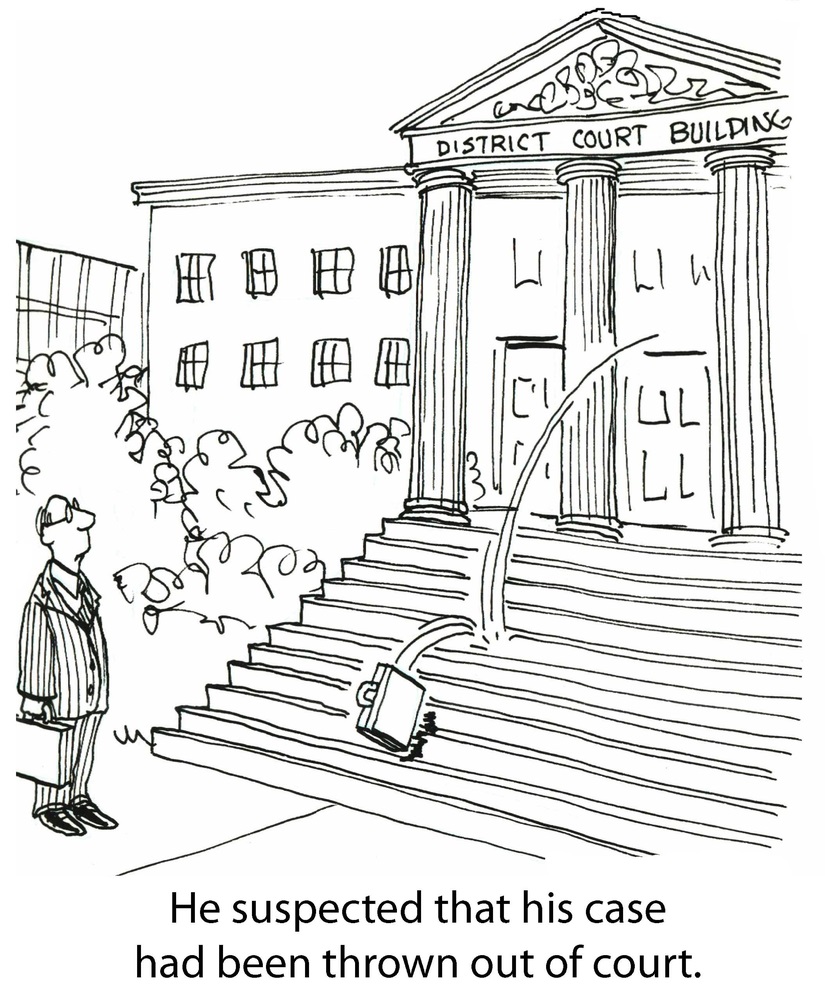
08 Jul You May Be Entitled to Payment of Your Attorneys’ Fees If Your Opponent Files a Frivolous Case Against You
In the last several weeks Edwards Law has addressed: the benefits of including a litigation clause in your business contracts; when your attorney fees may not be recoverable; and when costs may be recoverable. In our last blog on fees, we discuss an alternative way that you and your business can collect attorney fees—like when your opponent decides to sue or defend a case against you that he/she/it knows is frivolous or baseless and is brought only for the purpose of harassing you and your company.
When Are Attorneys’ Fees Recoverable Without a Litigation Clause in a Contract?
As stated in a prior blog, you can get your attorneys’ fees paid to file a lawsuit if your contract with the opposing party provides for recovery. However, it is still possible to collect your attorneys’ fees in other situations. The following are examples of other situations where you and your business may be able to recover attorneys’ fees and costs.
If Your Opponent Files Frivolous Claims or Defenses. A court may award you reasonable attorneys’ fees if your opponent or your opponent’s attorney brings or defends a civil action, either in whole or in part, that the court determines lacked substantial justification or was brought for delay or harassment of another party. The statute defines “lacked substantial justification” as:
- substantially frivolous;
- substantially groundless; or
- substantially vexatious.
A court may find a claim “frivolous” if your opponent cannot provide a rational argument based on either the law or the evidence to support the claim. An action is “groundless” if there is no credible evidence to support the allegations in the pleadings. A claim is “vexatious” when it is brought or maintained in bad faith.
If Your Opponent Makes Improper or Unwarranted Representations to the Court in Signed Pleadings. Rule 11 of the Colorado Rules of Civil Procedure requires that all pleadings, motions, and other court filings be signed by an attorney or any unrepresented litigant. These signatures certify that the document is well grounded in fact and warranted by existing law or a good faith argument for a change of existing law. The signature also certifies that the filing is not made for any improper purpose. If your opponent files frivolous documents in violation of this rule, a court may impose sanctions, which may include an order to pay you your reasonable expenses and attorneys’ fees incurred due to the filed document.
If Your Opponent Is Sanctioned for Failure to Make Disclosure or Cooperate in Discovery. If your opponent refuses to properly disclose requested discovery, under Rule 37 of the Colorado Rules of Civil Procedure, you may apply for a court order compelling either discovery or mandatory disclosures required by Rule 26(a) of the Rules of Court. If the motion is granted or if the disclosure or requested discovery is provided after the motion’s filing, the court may require your opponent or the deponent who made the motion necessary (or the counsel advising them) to pay your reasonable expenses and attorneys’ fees incurred in bringing the motion. However the court may decide not to award expenses if it finds:
- that you failed to make a good faith effort to obtain the disclosure of discovery without court action;
- the nondisclosure or discovery responses or objections to discovery were substantially justified; or
- another basis making the award of expenses unjust.
If Your Opponent Is Held in Contempt. If your opponent has been disobedient, disrespectful, or acted in another way that disrupted the court’s proceedings, your opponent can be found guilty of contempt under Rule 107 of the Colorado Rules of Civil Procedure, which could potentially require your opponent to pay your costs and reasonable attorneys’ fees in connection with the contempt proceedings.
If You Secure a Dismissal of a Claim Under Rule 12(b). If your opponent brings frivolous and baseless tort claims against you or your business, and you secure a dismissal of those tort claims under Rule 12(b) of the Colorado Rules of Civil Procedure, the court must award you a judgment for the reasonable attorneys’ fees incurred in defending the action. You could also obtain an award of attorneys’ fees (although it’s not mandatory) under Rule 12(b) based on certain other defenses including:
- lack of subject matter jurisdiction;
- lack of personal jurisdiction;
- insufficiency of process;
- insufficiency of service of process;
- failure to state a claim on which relief can be granted; and
- failure to join a party under Rule 19 of the Colorado Rules of Court.
Has someone filed a frivolous case against you or your business? Call Edwards Law today to discuss your options and whether you may be able to recover your attorneys’ fees for having to defend a frivolous and baseless lawsuit.


No Comments